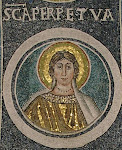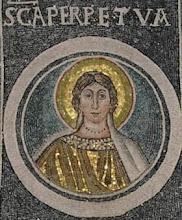The same service omitted the Nicene Creed, instead using “An Affirmation of Faith” from A New Zealand Prayer Book.
I wasn't familiar with this "Affirmation of Faith", so I searched the web and found the Service for Lenten Youth Sunday. Here are the words for the "Affirmation of Faith":
You O God, are supreme and holy.
You create our world and give us life.
Your purpose overarches everything we do.
You have always been with us.
You are God.
You, O God, are infinitely generous,
good beyond measure.
You came to us before we came to you.
You have revealed and proved
your love to us in Jesus Christ,
who lived and died and rose again.
You are with us now.
You are God.
You, O God, are Holy Spirit.
You empower us to be your gospel in the world.
You reconcile and heal; you overcome death.
You are our God. We worship you.
It is instructive to contrast this with the Nicene Creed. Preceding the Nicene Creed in the Holy Communion service in the 1928 Prayer Book is a rubric which says that one may omit the Nicene Creed if it has been said at a previous service on the same day:
Then shall be said the Creed commonly called the Nicene, or else the Apostles' Creed; but the Creed may be omitted, if it hath been said immediately before in Morning Prayer; Provided, That the Nicene Creed shall be said on Christmas Day, Easter Day, Ascension Day, Whitsunday, and Trinity Sunday.
I BELIEVE in one God the Father Almighty, Maker of heaven and earth, And of all things visible and invisible: And in one Lord Jesus Christ, the only-begotten Son of God; Begotten of his Father before all worlds, God of God, Light of Light, Very God of very God; Begotten, not made; Being of one substance with the Father; By whom all things were made: Who for us men and for our salvation came down from heaven, And was incarnate by the Holy Ghost of the Virgin Mary, And was made man: And was crucified also for us under Pontius Pilate; He suffered and was buried: And the third day he rose again according to the Scriptures: And ascended into heaven, And sitteth on the right hand of the Father: And he shall come again, with glory, to judge both the quick and the dead; Whose kingdom shall have no end.
And I believe in the Holy Ghost, The Lord, and Giver of Life, Who proceedeth from the Father and the Son; Who with the Father and the Son together is worshipped and glorified; Who spake by the Prophets: And I believe one Catholic and Apostolic Church: I acknowledge one Baptism for the remission of sins: And I look for the Resurrection of the dead: And the Life of the world to come. Amen.
What first strikes me is that the "Affirmation of Faith" avoids the use of the word "Father" and avoids calling Jesus Christ "Son".
I also notice that the wording avoids calling Jesus Christ "God". One could say this "Affirmation of Faith" without believing in the Trinity.





3 comments:
I think you are accurate in that assessment - don't need to be Trinitarian to say that Affirmation of Faith.
Don't even need to be Unitarian.nd
"The Affirmation of Faith" is on page 481 of A New Zealand Prayer Book. The rubric says: "The Apostles' Creed (page 461), The Nicene Creed (page 410), or A Liturgical Affirmation as follows may be said or sung, all standing." The rubric thus places this "Affirmation of Faith" on an equal footing with the historic creeds of the Church.
I have several problems with this.
First, with regards to the Youth Sunday service at St. Paul's in Marquette, MI: alternative forms for the Eucharistic liturgy (found in Enriching Our Worship) have been authorized by General Convention. However, they may not be used as the principal service of a Sunday. So if this liturgy was the principal service that day, the priest(s) involved are in violation of ordination vows. Plus, to my knowledge, this particular liturgy and its "Affirmation of Faith" have not been authorized for use at other times anyway. So to use them at all in public worship is to violate one's ordination vows.
As to the "Affirmation of Faith" itself, I agree with Perpetua and now's concerns about the fact that it drops the language of Father and Son. This suggests to me a watering down of orthodox Trinitarian theology and Christology that places that theology's substantive content in jeopardy (perhaps making it optional rather than obligatory and central).
There's also the matter of what gets left out of this "Affirmation of Faith" when compared to the Apostles' and Nicene Creeds. In particular, the following affirmations of Christian faith are omitted:
(1) The Lordship of Jesus
(2) The Incarnation of Jesus
(3) The Virgin Mary
(4) The Ascension of Jesus
(5) The Return of Jesus as Judge
(6) The Resurrection of the Body (or of the Dead)
In several instances, what it does mention is so vague that it loses substantive content.
For instance, it's reference to the Church ("you empower us to be the gospel in the world") leaves out the defining characteristics of the Church as "one holy catholic and apostolic" - characteristics which are central to what it means to be the Church.
It's reference to the forgiveness of sins ("you reconcile and heal") omits the language of "sin."
And it's reference to everlasting life ("you overcome death") excludes any mention of "kingdom" or "the world to come."
This "Affirmation of Faith" is to the historic creeds of the Church what skim milk is to cream.
Post a Comment